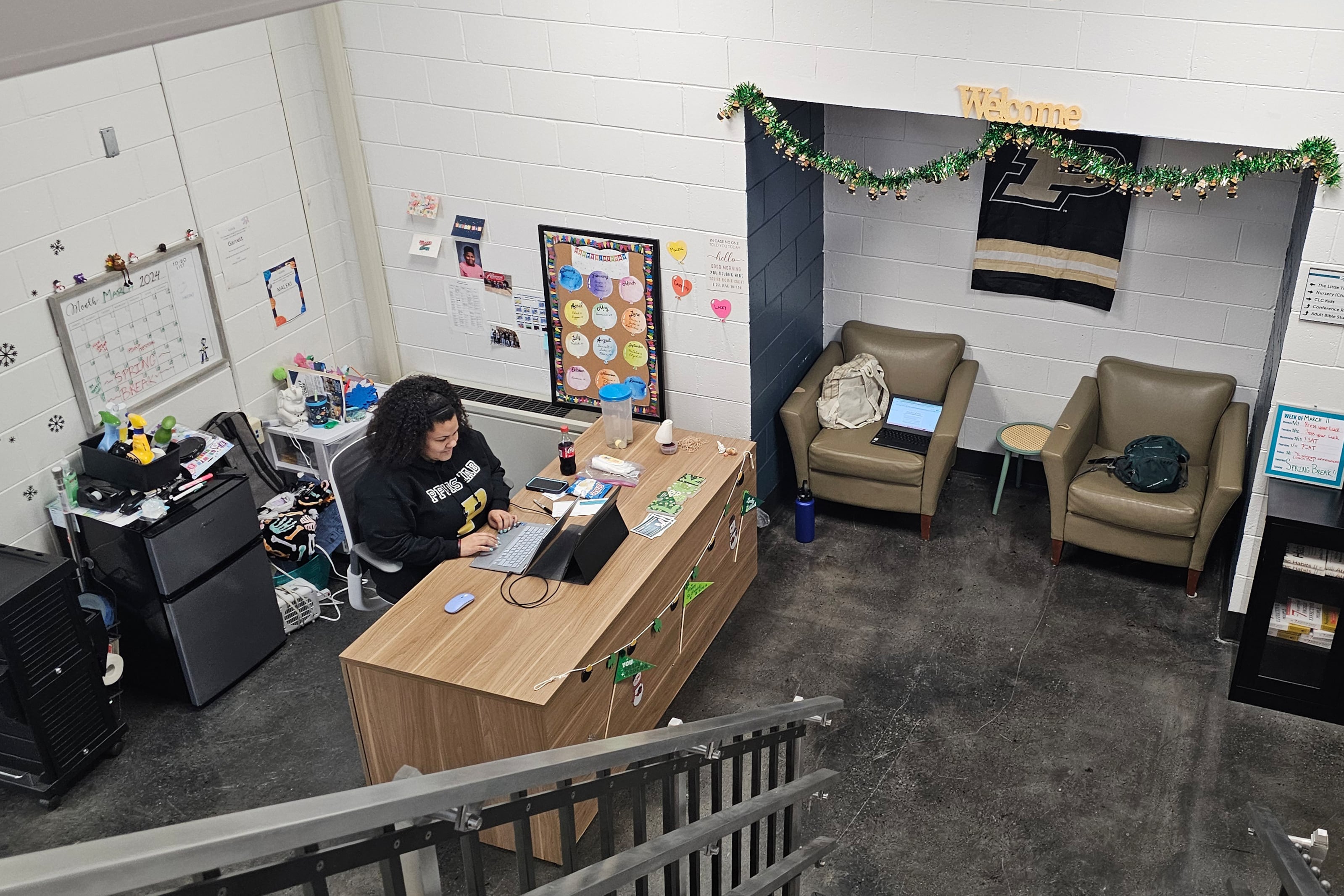Sign up for Chalkbeat Indiana’s free daily newsletter to keep up with Indianapolis Public Schools, Marion County’s township districts, and statewide education news.
On the bottom floor of Cornerstone Lutheran Church in Indianapolis on a recent Friday, all of the Purdue Polytechnic High School Lab School students gathered in a circle to clear their heads.
The entire school is just about 20 students — ninth and 10th graders who came to the new microschool from the charter network’s Englewood campus just a five-minute walk away.
As a public program, the Lab School is unique among the dozens of loosely defined microschools around Indiana, which are usually very small private schools. But like the other models, it emphasizes customized education for students — something Indiana lawmakers have hinted at funding.
Each Lab School student chose to attend after a recommendation from PPHS teachers who felt they’d do better in a small environment that could offer more personalized curriculum and social-emotional support, like the community circle time on Fridays. There, students shared how they felt listening to calming music after a week that included PSAT testing.
“It makes me feel like my problems are smaller,” one student said.
The Lab School opened in the fall of 2023 with a model that school leaders describe as part one-room schoolhouse, part all-day advisory period.
The school has access to the resources of the Purdue Polytechnic charter network when it comes to administration, extracurriculars, and food services.
PPHS CEO Keeanna Warren said it was important to PPHS leadership to provide a small, personalized environment for students who need it, especially as a tuition-free public charter school.
“If we want to see academic changes, if we want to support all students, we have to try new things and be responsive to what families and communities are saying they want,” Warren said.
Students at the Lab School work on personalized learning plans at their own pace, which allows for acceleration, Warren said. But they often gather in groups studying the same subjects — half the school might work on biology, while the other half studies algebra, for example.
While some students received a recommendation from PPHS teachers to attend the Lab School, many also came due to word of mouth.
When she pictured high school, ninth grader Emagine Thompson said she thought she’d go through the whole day without breaks. Instead, she said she found flexibility at the Lab School, which has allowed her to participate in job shadowing.
Jeff Edge, one of the school’s two all-purpose coaches, says the flexibility is purposeful. When one of his students needs a course or work experience, he can find ways for them to meet the requirement in the community.
“In a big public system, you’re a cog in the machine,” he said of his decade in teaching.
There’s also time in the day for things like podcasting and volunteering in the church’s mother’s pantry, said Tamika Riggs, the school’s other coach.
During one recent community-led session, students produced poems exploring the impact of their family background on their identity — and then read them aloud to the school, Riggs said.
“A student might not feel comfortable doing that in a class of 2,000,” Riggs said.
Aleksandra Appleton covers Indiana education policy and writes about K-12 schools across the state. Contact her at aappleton@chalkbeat.org.






